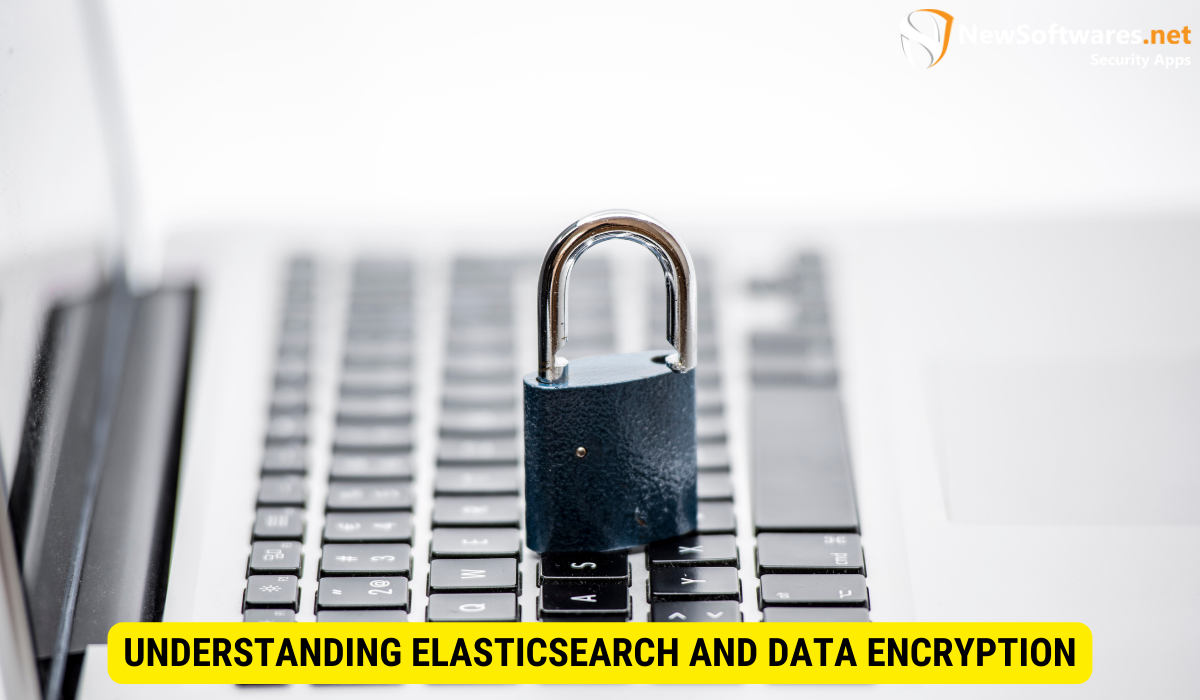Yes, Elasticsearch data can be encrypted on disk using solutions like X-Pack Security or third-party tools.
In today’s rapidly evolving digital landscape, data security has become an utmost priority for organizations across various industries. As businesses increasingly rely on Elasticsearch, a powerful and scalable open-source search and analytics engine, questions about its data encryption capabilities have arisen. In this article, we will delve into the intricacies of Elasticsearch and explore the possibilities of encrypting its data on disk.
Understanding Elasticsearch and Data Encryption

Elasticsearch, developed by Elastic, is designed to provide real-time, distributed search and analytics capabilities. It offers a robust and scalable clarification for enterprises dealing with large volumes of data. However, with the ever-present threat of data breaches and security vulnerabilities, the need to encrypt sensitive information stored in Elasticsearch becomes paramount.
What is Elasticsearch?
Elasticsearch is a highly versatile and distributed search engine built on top of Apache Lucene. It enables efficient storage, retrieval, and analysis of structured and unstructured data. Its real-time nature makes it ideal for applications that require instant access to rapidly changing data.
With Elasticsearch, organizations can index and search vast amounts of data across multiple servers, making it easier to retrieve relevant information quickly. It supports various data types, including text, numeric, geospatial, and more. Additionally, Elasticsearch provides powerful querying capabilities, allowing users to perform complex searches and aggregations effortlessly.
Furthermore, Elasticsearch is highly scalable, allowing organizations to handle massive data volumes and accommodate increasing workloads. It achieves this scalability through its distributed architecture, which enables data to be distributed across multiple nodes, ensuring high availability and fault tolerance.
The Importance of Data Encryption
Data encryption serves as a critical safeguard against unauthorized access to sensitive information. Encrypted data is transformed into an unreadable format, ensuring that even if it is compromised, it remains useless to malicious actors. This is particularly relevant when it comes to storing proprietary business data, personally identifiable information (PII), and other sensitive records in Elasticsearch.
Encrypting data in Elasticsearch involves using cryptographic algorithms to convert plain text into ciphertext. This process ensures that only authorized parties with the appropriate decryption keys can access and understand the information. By implementing data encryption, organizations can mitigate the danger of data breaches and comply with various data protection regulations.
When it comes to Elasticsearch, there are multiple levels at which data encryption can be applied. At the transport level, Secure Sockets Layer (SSL) or Transport Layer Security (TLS) can be used to encrypt data as it travels between Elasticsearch nodes and clients. This protects data from interception and tampering during transit.
Additionally, Elasticsearch provides the option to encrypt data at rest. This means that data stored on disk is encrypted, ensuring that even if physical storage media is compromised, the data remains secure. Elasticsearch supports various encryption mechanisms, including file-level encryption and field-level encryption, allowing organizations to choose the level of granularity that best suits their needs.
Implementing data encryption in Elasticsearch requires careful planning and consideration of factors such as performance impact, key management, and compliance requirements. Organizations must assess their specific security needs and consult with experts to design and implement an encryption strategy that effectively protects their sensitive data.
The Basics of Disk Encryption
Before delving into Elasticsearch-specific encryption, let’s first understand the fundamentals of disk encryption. Disk encryption is a process that transforms data stored on a computer’s disk into an encrypted form. This protects the contents of the disk in case it falls into the wrong hands.
How Disk Encryption Works
Disk encryption typically involves the use of cryptographic algorithms to secure data. When enabled, the encryption software encrypts every file, folder, and block of data on the disk, making it accessible only with the correct decryption key. In the event of theft or illegal right of entry, the encrypted data remains protected.
Benefits of Disk Encryption
Implementing disk encryption brings several benefits, including:
- Data Protection: Disk encryption ensures the confidentiality and integrity of sensitive data, guarding against unauthorized access.
- Compliance: Implementing disk encryption helps organizations meet regulatory requirements and industry standards for data protection.
- Loss or Theft Mitigation: In the event of a lost or stolen device, disk encryption prevents unauthorized individuals from accessing the sensitive information contained within.
- Peace of Mind: With disk encryption in place, individuals & organizations can have peace of mind knowing that their data is safe, even in the face of security breaches or physical theft.
- Enhanced Trust: By taking proactive measures to secure sensitive data, organizations can make trust with their customers and partners, attracting and retaining business.
Elasticsearch and Disk Encryption
While Elasticsearch does not provide built-in disk encryption mechanisms, there are approaches and third-party tools available that enable encryption of Elasticsearch data on disk.
The Need for Encrypting Elasticsearch Data
Encrypting Elasticsearch data is essential for organizations that handle sensitive data types, adhere to strict compliance regulations, or simply prioritize data privacy and security. Encrypting data at rest ensures that even if an unauthorized user gains access to the physical disk, the encrypted data remains unreadable and useless to them.
How Elasticsearch Handles Data Encryption
To enable data encryption for Elasticsearch, one option is to utilize Elasticsearch’s native feature called X-Pack Security. X-Pack Security allows for the encryption of data at rest, transit, and during its entire lifecycle. By leveraging Transport Layer Security (TLS) encryption, X-Pack Security ensures secure communication among Elasticsearch nodes and encryption of data stored on disk.
Methods for Encrypting Elasticsearch Data on Disk
Let’s explore two common methods for encrypting Elasticsearch data on disk:
Using X-Pack Security
X-Pack Security, a commercial offering by Elastic, provides enterprise-grade security features for Elasticsearch. With X-Pack Security, you can enable data encryption at rest, making it an ideal solution for organizations seeking a comprehensive and integrated security approach.
Third-Party Tools for Encryption
Alternatively, you can also employ third-party tools specifically designed for encrypting Elasticsearch data on disk. These tools offer features such as disk encryption, encryption key management, and access controls, enhancing the security of your Elasticsearch deployment.
Challenges and Solutions in Encrypting Elasticsearch Data

While encrypting Elasticsearch data on disk brings numerous benefits, it is crucial to be aware of potential challenges.
Potential Issues in Data Encryption
Some common challenges when implementing encryption for Elasticsearch include:
- Performance Impact: Encrypting big volumes of data can introduce additional computational overhead, potentially impacting query performance. Optimizations and selecting appropriate encryption algorithms can help mitigate this impact.
- Key Management: Managing encryption keys securely is critical to the overall security of encrypted data. Implementing robust key management practices ensures that encryption keys are protected and readily available when needed.
- Compatibility: When considering third-party tools for encryption, ensuring compatibility with your Elasticsearch version and deployment configuration is important.
Overcoming Encryption Challenges
To address these challenges effectively, make sure to:
- Conduct Performance Testing: Prioritize performance testing to understand the impact of encryption on your Elasticsearch cluster. This helps optimize performance and identify potential bottlenecks.
- Establish Key Management Best Practices: Implement a robust and secure key management system that follows industry standards and ensures the confidentiality and availability of encryption keys.
- Research and Evaluate Third-Party Solutions: Thoroughly research and evaluate third-party tools to determine their compatibility, reliability, and performance for your specific Elasticsearch deployment.
Key Takeaways
- Elasticsearch is a powerful search & analytics engine that requires data encryption to protect sensitive information.
- Disk encryption transforms data on the disk into an unreadable format, safeguarding it in case of unauthorized access.
- Although Elasticsearch does not provide built-in disk encryption, solutions like X-Pack Security and third-party tools offer encryption capabilities.
- Encrypting Elasticsearch data at rest is crucial for organizations safeguarding sensitive data types and meeting compliance requirements.
- Challenges in implementing encryption include performance impact, key management, and compatibility, which can be overcome with proper planning and optimization.
FAQs
Is Elasticsearch secure by default?
Elasticsearch does not enable security features by default. However, by utilizing X-Pack Security or third-party tools, you can enhance Elasticsearch security by enabling encryption and access controls for your data.
Can I encrypt data in transit with Elasticsearch?
Yes, Elasticsearch offers the capability to encrypt data in transit using Transport Layer Security (TLS) encryption. This ensures secure communication between Elasticsearch nodes and protects data from unauthorized interception.
Does encrypting Elasticsearch data impact performance?
Encrypting data can introduce additional computational overhead, potentially impacting query performance. Performing performance testing and optimizing your Elasticsearch deployment can help mitigate any performance impact.
Can I use open-source tools for encrypting Elasticsearch data on disk?
While Elasticsearch does not provide built-in disk encryption, open-source tools like Elasticsearch-Curator and Alternator can be used to implement encryption and enhance the security of Elasticsearch data on disk.
Are there any additional security considerations when using third-party encryption tools?
When using third-party encryption tools, it is essential to ensure compatibility with your Elasticsearch version and deployment configuration. Additionally, adequate key management practices should be followed to maintain the security of encryption keys.
Conclusion
In conclusion, while Elasticsearch does not offer built-in disk encryption capabilities, there are effective solutions available to protect sensitive data stored within Elasticsearch. Through the use of tools like X-Pack Security or third-party encryption tools, organizations can achieve data encryption at rest and maintain data privacy and security. By understanding the challenges & implementing best practices, businesses can confidently store their valuable data in Elasticsearch, protected from unauthorized access and potential security breaches.
